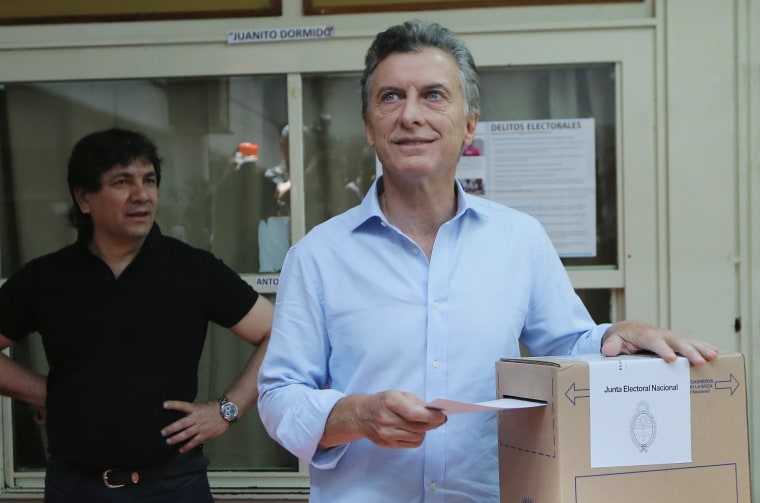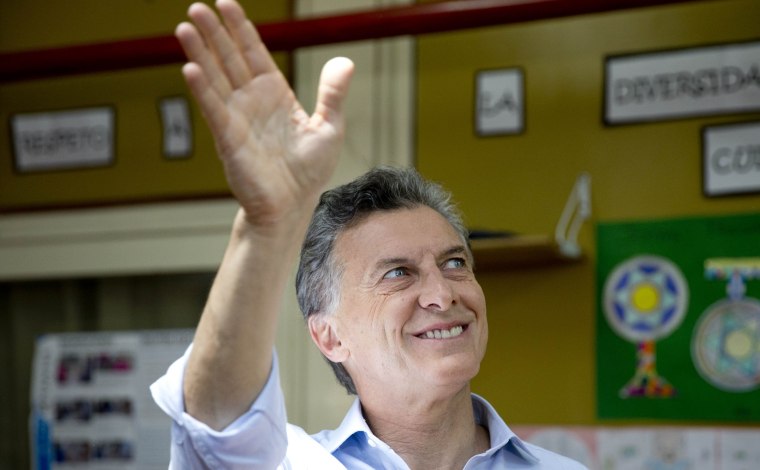BUENOS AIRES, Argentina — Conservative opposition candidate Mauricio Macri comfortably won Argentina's presidential election Sunday after promising business-friendly reforms to spur investment in the struggling economy.
Macri's supporters swarmed to the Obelisk in the heart of Buenos Aires' theater district for a giant street party as a subdued Daniel Scioli, the ruling party candidate, conceded defeat.
Argentina's election body said Macri had 53 percent of the votes to Scioli's 47 percent, with three-quarters of returns tabulated. Three exit polls also pointed toward a Macri victory.
"This feels like a dream," said 43-year-old doctor Angela Torres at Macri's headquarters, which pulsed with Latin music and was festooned with balloons of white and sky blue, the colors of the Argentine flag. "A new Argentina is on its way that will be better in every sense."

In a sign of Argentines' weariness with a spluttering economy, rising crime and corruption, Macri had gone into the runoff election with a comfortable lead in opinion polls over Scioli, the candidate of outgoing President Cristina Fernandez.
Scioli's campaign team said they would wait to see official results before making any statements. But a source at the election body said the result trend was irreversible.
During the campaign Scioli warned that Macri's orthodox policies are similar to those that preceded Argentina's 2002 economic crisis, which tossed millions of people into poverty.
Macri promises to set Latin America's third-biggest economy on a more free-market course after a combined 12 years of leftist populism under Fernandez and her late husband and predecessor, Nestor Kirchner.
Related: Argentines Weigh Kirchner Policies, State Role in Election
Barred from seeking a third straight term, Fernandez will leave office with Argentina deeply divided between those who back her protectionist policies and defense of worker rights and others who blame her policies for weak economic growth.
A moderate within the Peronist movement, Scioli failed to win over middle-ground voters after struggling to step out of Fernandez's shadow during the campaign.
His talk of maintaining generous social welfare programs and energy subsidies while making only gradual changes to the capital and trade controls that have hobbled the economy hurt his credentials as a candidate for change.
"Scioli did not manage to differentiate himself from Fernandez, and so people stopped seeing him as a change of style and went over to Macri," said Mariel Fornoni, a political analyst.
